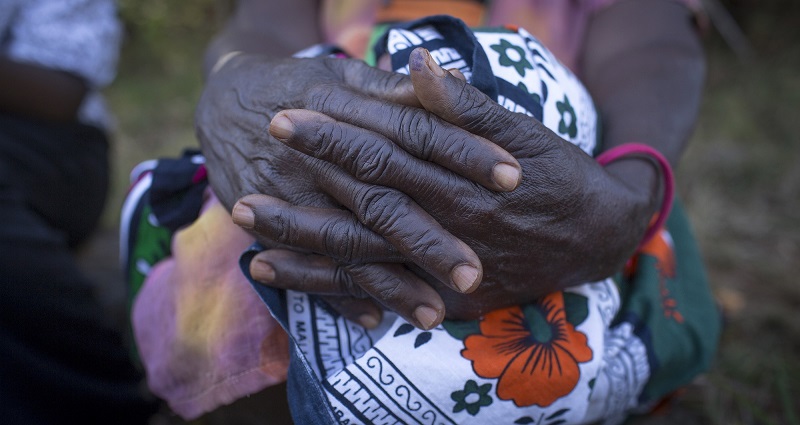
Data on abuse towards older women is needed (c) Roopa Gogineni/HelpAge International
By Ed Knight
As member states, UN agencies and civil society groups gather at the Commission on the Status on Women (CSW) to promote gender equality, HelpAge International is drawing attention to the lack of data on older women, which leaves them vulnerable to violence and discrimination.
“Data on physical and sexual violence against women usually stops at age 49, effectively excluding a quarter of the world’s women,” said Bridget Sleap, Senior Rights Policy Adviser at HelpAge, speaking at CSW this week.
“When women reach age 50 any violence and abuse against them usually goes unrecorded.”
Data, women and the SDGs
It’s the first CSW since the Sustainable Development Goals (SDGs) were adopted in September, with 193 member states agreeing to work to “achieve gender equality and empower all women and girls”. Yet a dearth of information on older women could leave millions sidelined.
Targets in the SDGs to eliminate female genital mutiliation (FGM) and ensure access to sexual and reproductive health services will monitor progress by looking at women and girls between the ages of 15 and 49. This means that if FGM becomes more or less common among older women, or access to health services gets better or worse, this won’t factor in the progress of the SDGs.
Member states and civil society groups have been successful in calling for the removal of age brackets measuring violence against women and the prevalence of certain diseases. HelpAge is calling for concrete commitments to remove the age brackets where they still exist.
In a joint WHO-UN report surveying 133 countries, only 17% reported having data on elder abuse. Although 59% said they have laws to prevent elder abuse, only 30% said these were fully enforced.
The importance of age and sex-disaggregated data was highlighted in a HelpAge study into elder abuse in Moldova (PDF). Through interviews with over 1,000 older people, it found more than a quarter had suffered acts of violence and abuse, and two-thirds of the victims were women.
“This year’s commission is a great opportunity for the world to address the challenges faced by older women,” said Toby Porter, Chief Executive Officer at HelpAge.
“The international community needs to recognise that women experience multiple, intersecting forms of discrimination and it’s only by addressing all of them that the goal of gender equality can be realised.”
Our involvement with CSW
HelpAge has sent a delegation to CSW, with representatives speaking at side events on the impact of widowhood on older women and women’s empowerment in sustainable development.
HelpAge International has also signed a joint NGO statement ahead of the Commission, calling for more to be done to combat violence and abuse against women through comprehensive data collection, disaggregated by age and gender, and effective policies and legislation.
A 2013 UN report, Neglect, Abuse and Violence against Older Women, demonstrates the importance for this, highlighting that older women are often excluded from legislation on domestic violence. It argues we need a more comprehensive understanding of the neglect, abuse and violence these groups experience.
